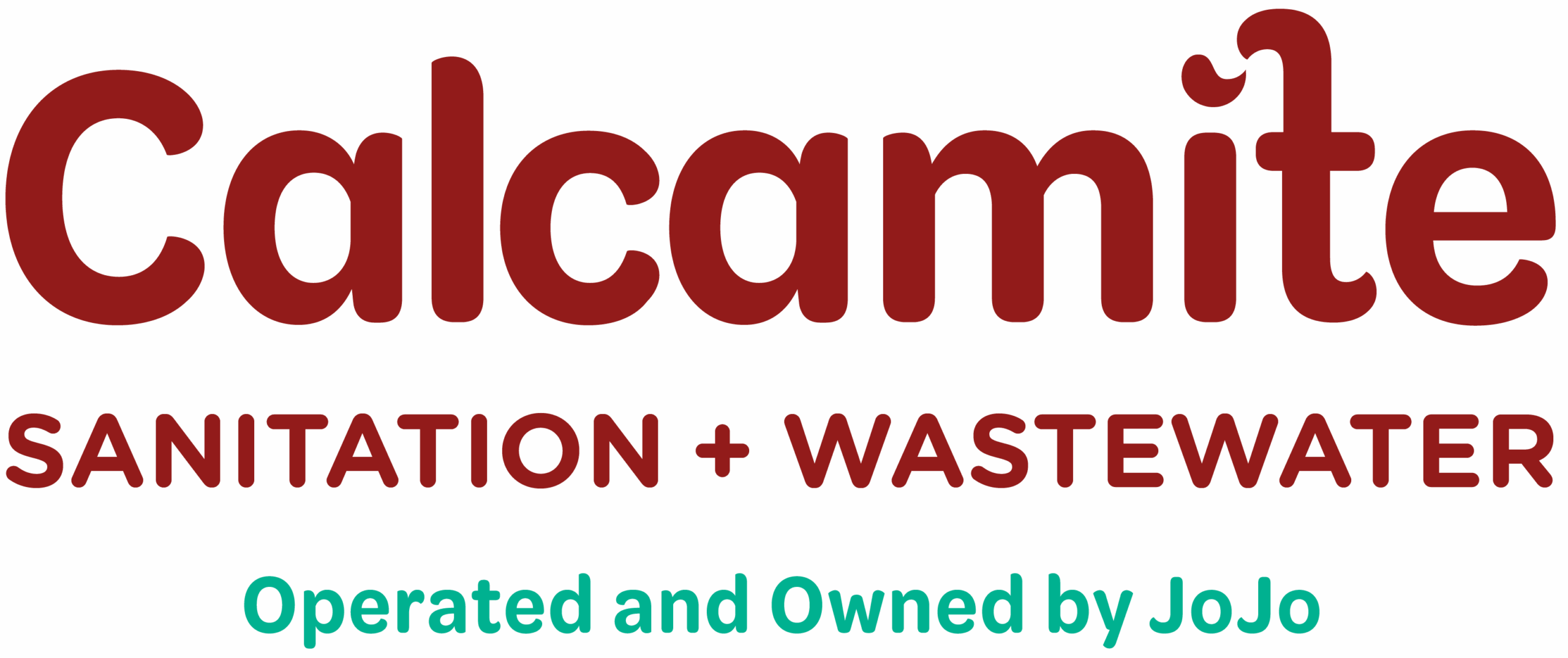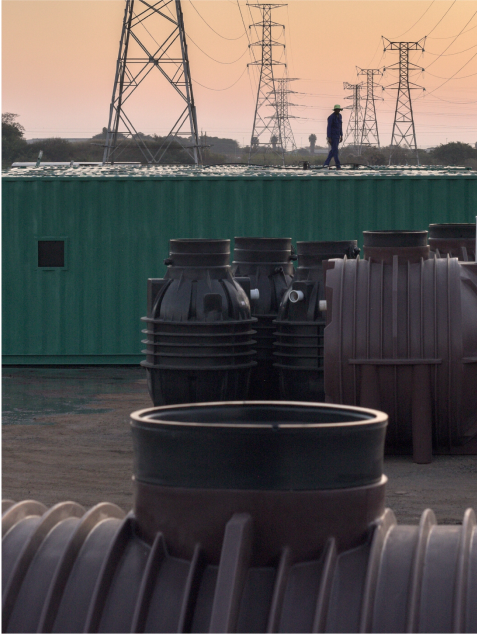Mozambique has faced several cholera outbreaks in recent years, causing widespread illness and loss of life. Between October 2023 and July 2024, cholera in Mozambique claimed 38 lives. The impact of these outbreaks extends far beyond the immediate health crisis though, affecting communities’ social and economic well-being.
At Calcamite, we understand the critical role that sanitation plays in preventing such outbreaks, and are committed to providing innovative solutions that can make a real difference. In this article, we’ll explore the current sanitation challenges in Mozambique, the causes and effects of poor sanitation, and highlight how Calcamite’s solutions can help.
Current Status of Sanitation in Mozambique
A 2022 World Health Organisation (WHO) report estimated that only 63% of the Mozambican population had access to basic water services, while a mere 38% had access to basic sanitation facilities.
These figures highlight the immense challenge Mozambique faces in providing adequate sanitation for its population. Economic constraints limit the government’s capacity to invest in infrastructure development, particularly in rural areas where the majority of the population lives.
The sanitation facilities which do exist are often concentrated in cities and towns, leaving rural communities particularly vulnerable to the spread of waterborne diseases like cholera. The government has had some success with vaccination drives, but a worldwide shortage of vaccines means that cholera prevention and control needs to start with sanitation.
Causes and Effects of Poor Sanitation
Poor sanitation is a major contributing factor to the spread of cholera. Contaminated water sources (often due to the lack of proper sewage systems) are a primary transmission route for the cholera bacterium. In many parts of Mozambique, untreated sewage is discharged directly into rivers, polluting the water used for drinking, cooking, and hygiene.
Inadequate sewage systems also lead to the contamination of groundwater. In areas with limited access to clean water, people are forced to rely on unsafe sources, increasing their risk of contracting cholera. Cultural practices can also play a role in the spread of cholera. In some communities, open defecation is still prevalent, leading to the contamination of soil and water sources.
The health consequences of cholera outbreaks are severe. The disease causes diarrhoea and vomiting, leading to dehydration and, in severe cases, death. Mortality rates can be high among vulnerable populations like children and the elderly.
The social and economic impacts of cholera outbreaks are equally devastating. Illness and death disrupt families and communities, and the fear of infection can lead to stigma and discrimination. In April of this year, nearly 100 people, many of them children, drowned when a fishing vessel trying to reach an island off the Mozambican coast capsized. The passengers were attempting to flee the mainland after disinformation about a massive cholera outbreak spread.
Why Poor Sanitation is a Critical Issue
In Mozambique, extreme weather events such as cyclones and floods often damage sanitation infrastructure, making it difficult to maintain hygiene standards. Rapid urbanisation, coupled with limited resources and inadequate planning, strains sanitation systems in urban areas, leading to overflow and contamination.
The link between poverty and poor sanitation is a vicious cycle. Poverty limits access to clean water and sanitation, leading to poor health outcomes and reduced productivity. This cycle can only be broken through sustainable and long-term solutions that address both the root causes and the consequences of poor sanitation.
Calcamite’s Solutions for the Prevention of Cholera Outbreaks
With decades of experience in providing innovative and reliable sanitation solutions across Africa, Calcamite is dedicated to addressing the critical role that proper sanitation plays in preventing cholera outbreaks. Our range of products is designed to meet the needs of communities facing waterborne health risks by offering sustainable, long-lasting solutions that can be implemented in areas vulnerable to disease outbreaks, such as Mozambique.
Our range of products and solutions includes:
Our septic tanks offer an efficient and cost-effective solution for sewage management in both rural and urban areas. They are designed to effectively separate and treat wastewater, preventing contamination of water sources.
Our advanced wastewater treatment systems ensure the safe disposal and treatment of wastewater, protecting the environment and public health. These systems are scalable and adaptable to different community sizes and needs.
Complete Water Management Systems:
We offer comprehensive wastewater and sanitation solutions, covering everything from design and manufacturing to installation and maintenance. We understand that every project is unique, so we tailor solutions to meet your specific needs. Whether you require a simple septic tank or a complex wastewater treatment system, we have the expertise to deliver. We also offer routine maintenance services and optional maintenance contracts to ensure your system operates optimally.
Our products are not only durable and long-lasting but also cost-effective, making them a viable option for communities with limited resources. We prioritise ease of installation and maintenance, ensuring that our solutions are accessible and sustainable in the long run.
Most importantly, our products have a direct and positive impact on community health and well-being. By improving sanitation and access to clean water, we can help prevent the spread of cholera and other waterborne diseases, leading to healthier and more productive communities.
In Closing
Improving sanitation isn’t just about infrastructure development – it’s about empowering communities and protecting public health. At Calcamite, we believe that our solutions can play a crucial role in preventing cholera outbreaks in Mozambique and across Africa. By providing accessible, affordable, and sustainable sanitation solutions, we can help break the cycle of poverty and disease, paving the way for a healthier and more prosperous future for all.
Contact Calcamite today for expert advice and tailored solutions.



